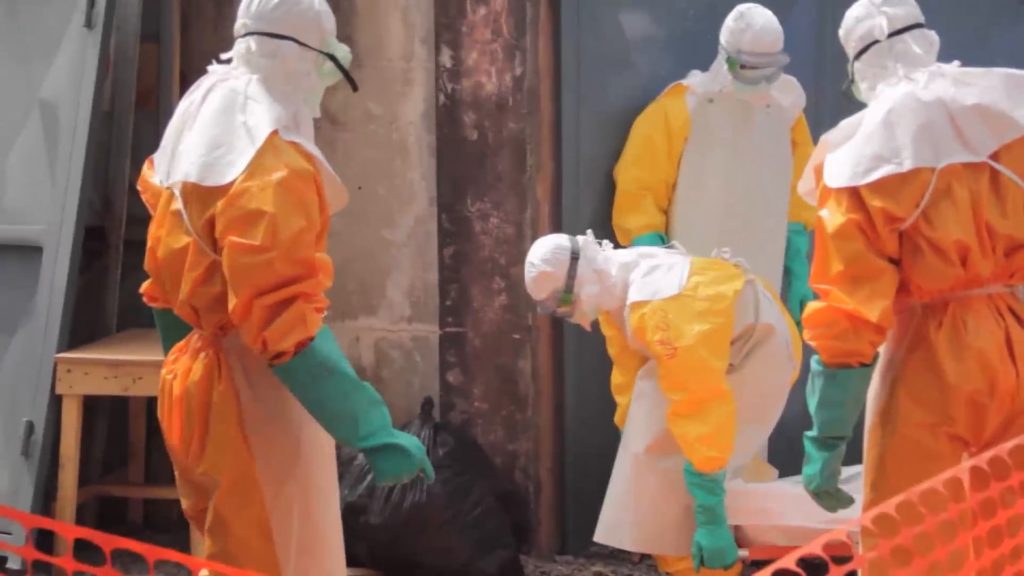NORTH KIVU PROVINCE – Doctors Without Borders has temporarily suspended its operations treating patients for the Ebola virus in the Democratic Republic of the Congo following armed attacks on two of its clinics.
The attacks on February 24th and 27th were described by witnesses as brazen and violent. Buildings and vehicles were set ablaze. After police arrived on the scene, a 30-minute gun battle ensued during which one police officer and the caretaker of one of the patients were killed. No staff or patients were harmed.
There were 57 patients in the treatment center during the second attack. Of those, 15 had confirmed cases of the Ebola virus. All 57 patients escaped alive, however, some have not yet been located.
This outbreak, the second-largest ever, began seven months ago. There have been 879 confirmed cases of persons with the deadly Ebola virus, including nearly 500 confirmed deaths. The outbreak continues to spread. While it appeared to have been nearly controlled within four health zones several months ago, it has now spread to 19 zones.
A spokesperson for Doctors Without Borders said,
We are extremely saddened by these attacks on our medical facilities. Not only did they endanger the lives of our staff members, but they also endangered the most vulnerable people at the heart of our response: the patients.
In light of these two violent incidents, we have no choice but to suspend our activities until further notice.
Doctors Without Borders operates in dangerous conditions, including areas of conflict, with the understanding that they are neutral. In fact, they do not consider asking for protection by any entity participating in the conflict because doing so appears to be choosing sides.
Their work in the DRC has been particularly difficult as residents are generally ignorant of how life-threatening Ebola is and they are highly suspicious of the motives of outsiders.
Many of the initial symptoms of the disease are similar to those of malaria or typhoid. Therefore, the people incorrectly assume that recovery is likely.
During the suspension, the medical humanitarian organization will review its overall role in the DRC and will continue to provide care in areas where there is less likelihood of violence.
Doctors Without Borders operates emergency healthcare centers in 20 of the DRC’s 26 provinces. They have had a presence in the country since 1977, dealing primarily with victims of conflict and displacement, HIV/AIDS, malaria, women’s health, and malnutrition.
To read more news on the Ebola Outbreak on Missions Box, go here.
Sources:
- NBC News, After attacks, MSF suspends Ebola treatment in epicenter of Congo outbreak
- NPR, Why Doctors Without Borders Is Suspending Work In The Ebola Epicenter In Congo
- Médecins Sans Frontières, Medical activities suspended after Ebola treatment centre attack
Image Source:
- ONU Brasil, Vimeo
